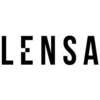Description
Purpose & Scope :
The Occupational Therapist functions within their professions standard of practice. The Occupational Therapist is to perform a thorough evaluation of patients assigned to him / her and establish goals and plans of treatment as outlined in the Rehabilitation Procedures / Operational Guidelines Manual.
He / She will delegate responsibilities and supervise supportive personnel, assist in administrative tasks and participate in educational and orientation programs.
Education :
Bachelors in occupational therapy is required.
Experience :
Two years of experience in occupational therapy is preferred.
Certification / Licensure :
Licensed as an Occupational Therapist by the Virginia Department of Health Professions is required.
BLS certification required.
Physical Requirements :
Administrative : The work environment characteristics described here are representative of those an employee may encounter while performing the essential function of the job.
Reasonable accommodations may be made to enable individuals with disabilities to perform the essentials functions : Repetitive movement of hands and fingers - typing and / or writing.
Walking : moving about on foot to accomplish tasks, sometimes for long distances. Frequent standing, walking, stooping, kneeling or crouching.
Reach with hands and arms. Frequent communications, verbal and written, and auditory acuity. Visually or otherwise identify, observe and assess.
Cope with mental, emotional stress associated with this position. Operate Office machines properly and in accordance with Hospital safety standards.
Perform light lifting (up to 15 pounds). Ability to work within deadlines with frequent interruptions. Ability to work in accordance with Hospital Safety Standards.
Working Conditions :
Patient Care : Works in well-lighted / ventilated office / clinical setting. Subject to frequent interruptions. Subject to long hours, changing shifts.
May be required to work beyond normal working hours when requested to do so, e.g., overtime, on call. Routine occupational exposure to infectious diseases, blood borne pathogens, bodily fluids, hazardous chemicals, noxious odors, latex, and / or musculoskeletal injuries.
The use of personal protective equipment (PPE) is needed for instances of exposure to blood, body fluids and infectious processes, and are supplied by the hospital.
Involved with patients, family members, co-workers, and visitors under all conditions, e.g., hostile and / or emotionally upset, disoriented or combative.








